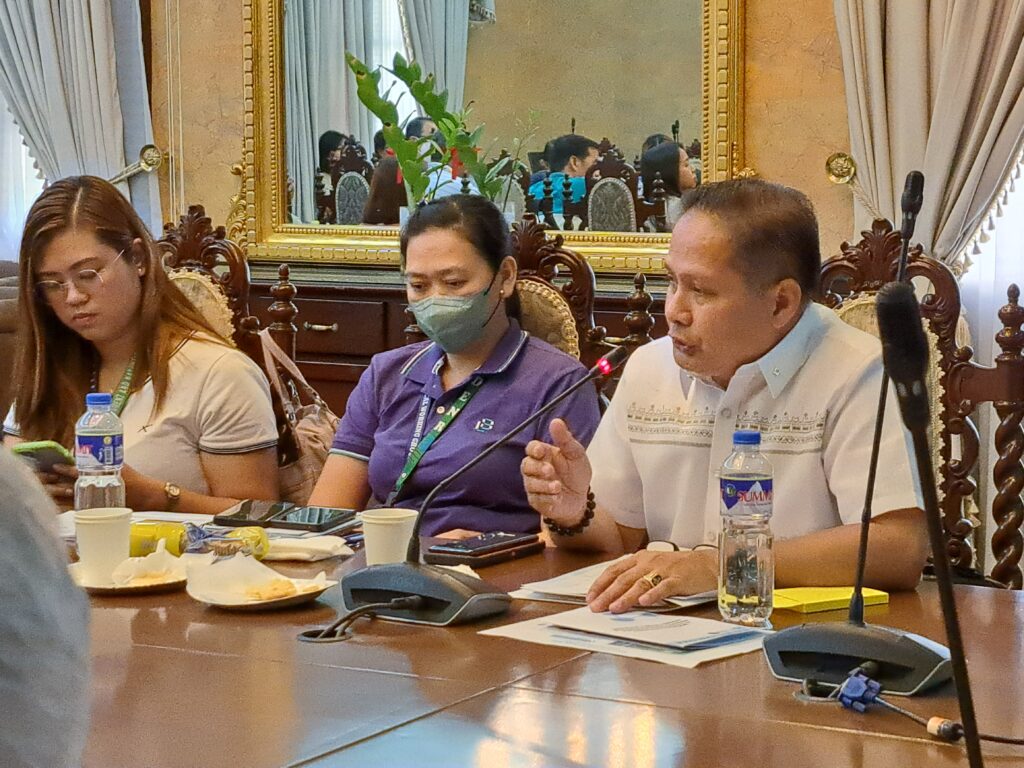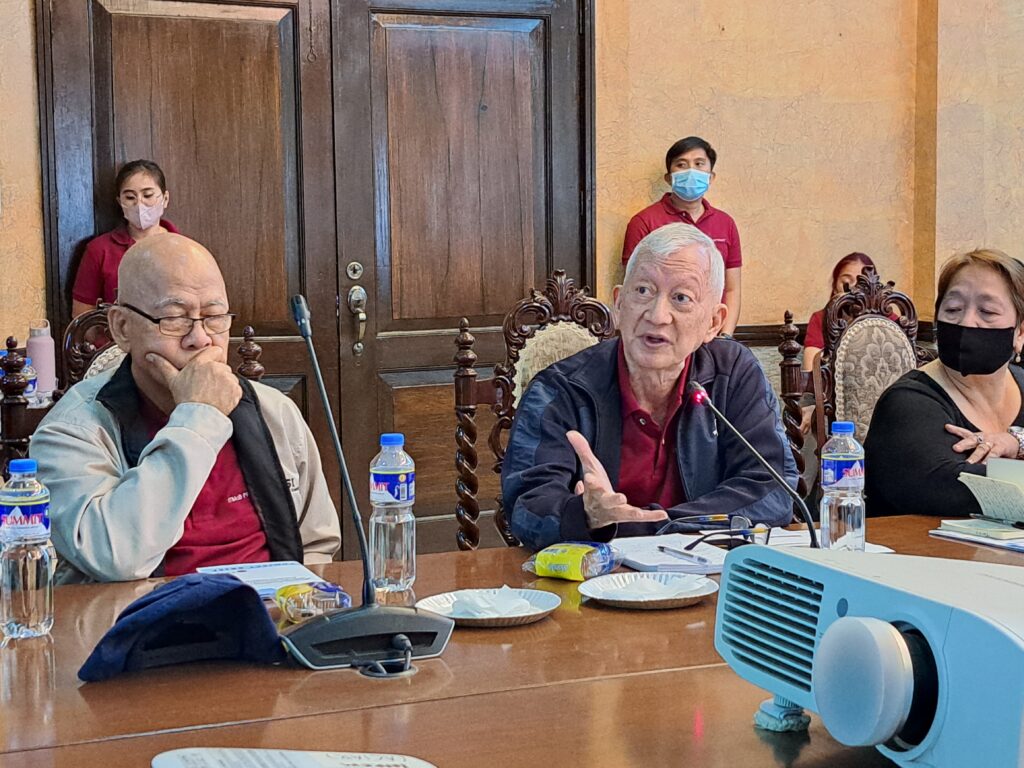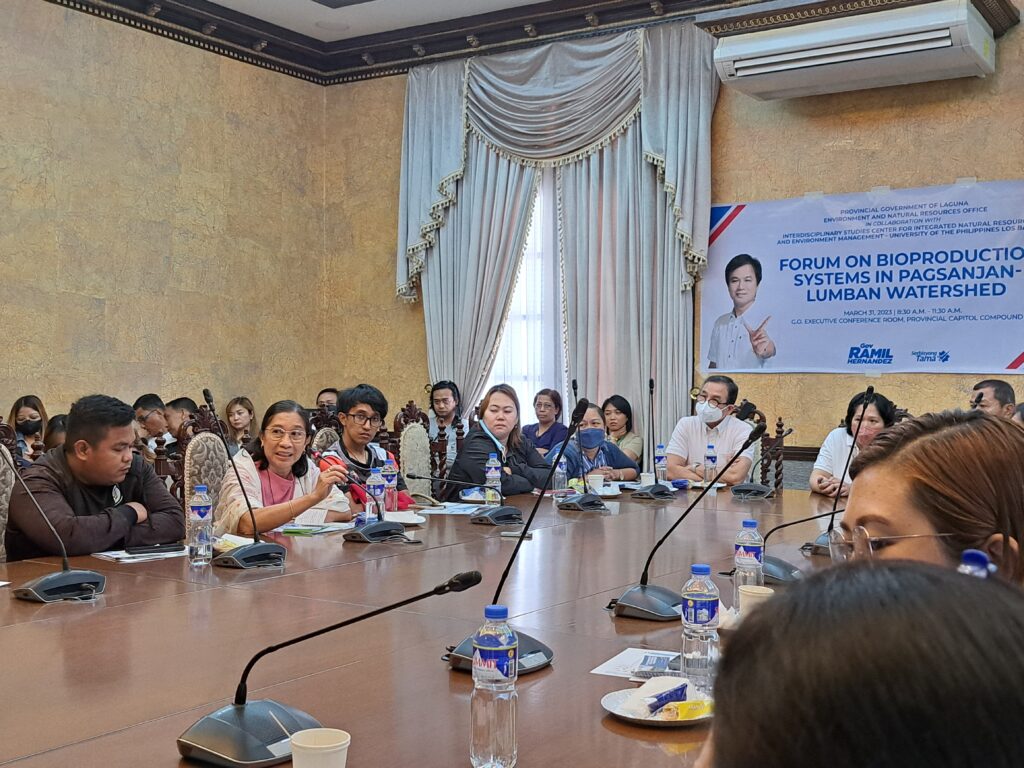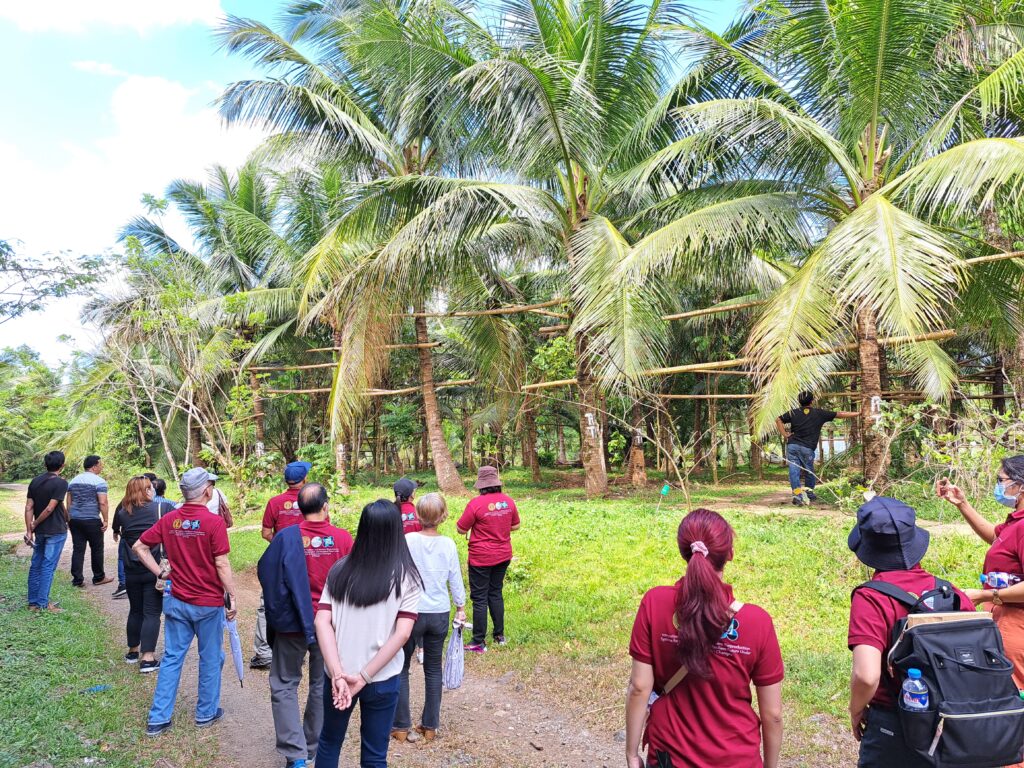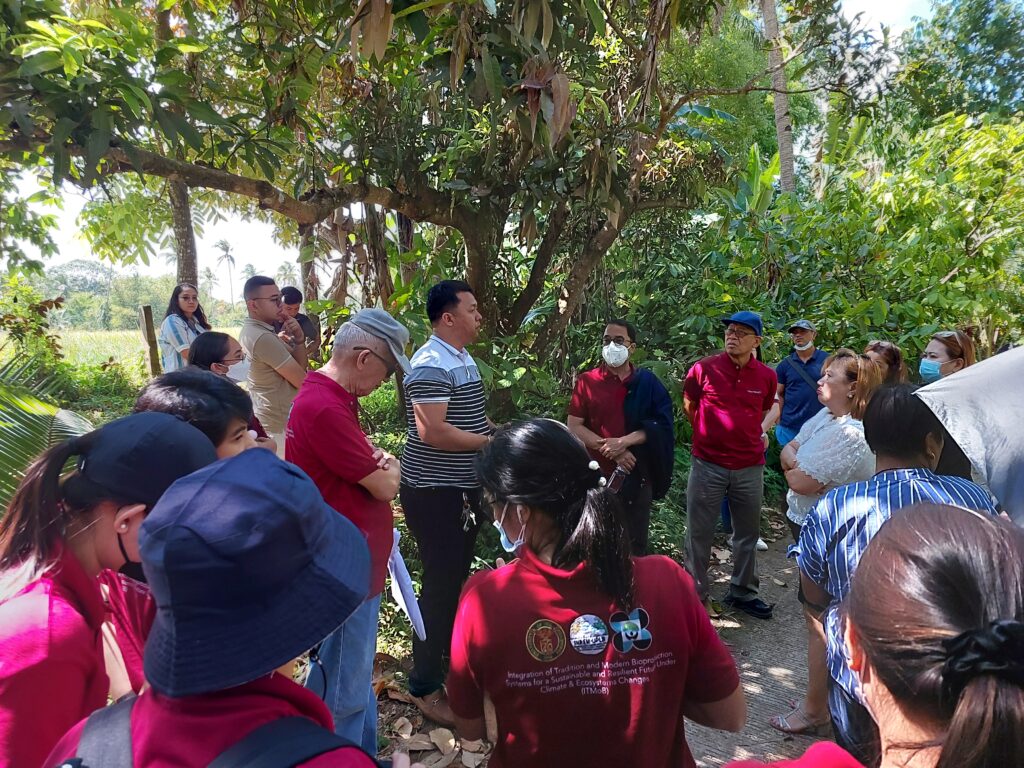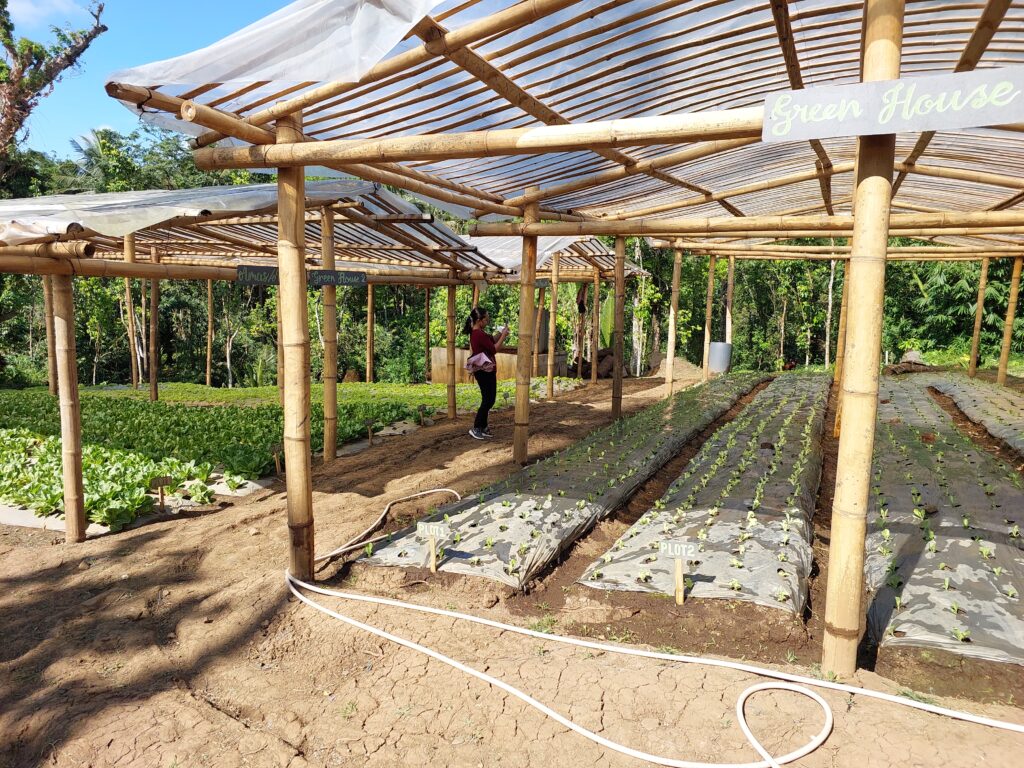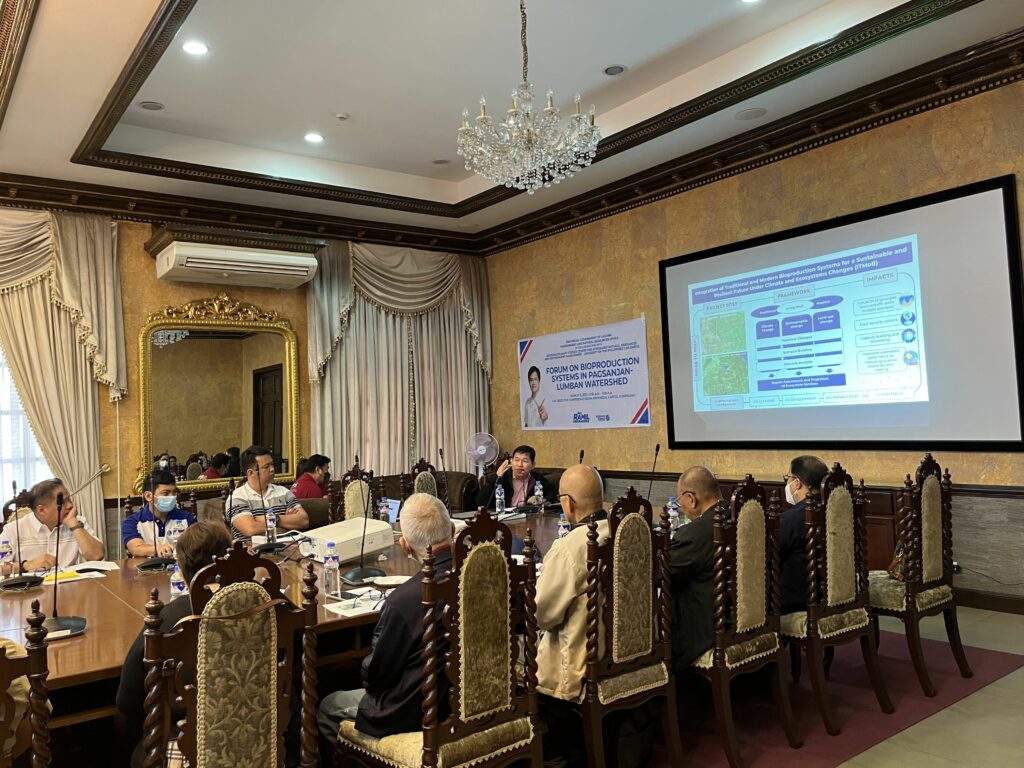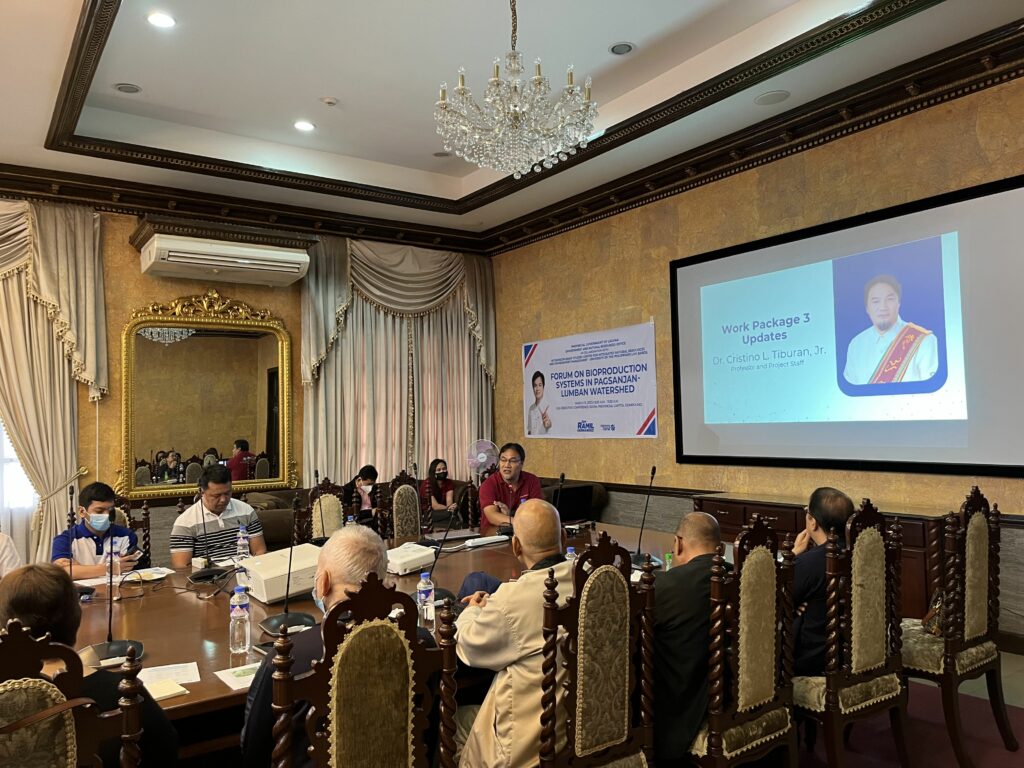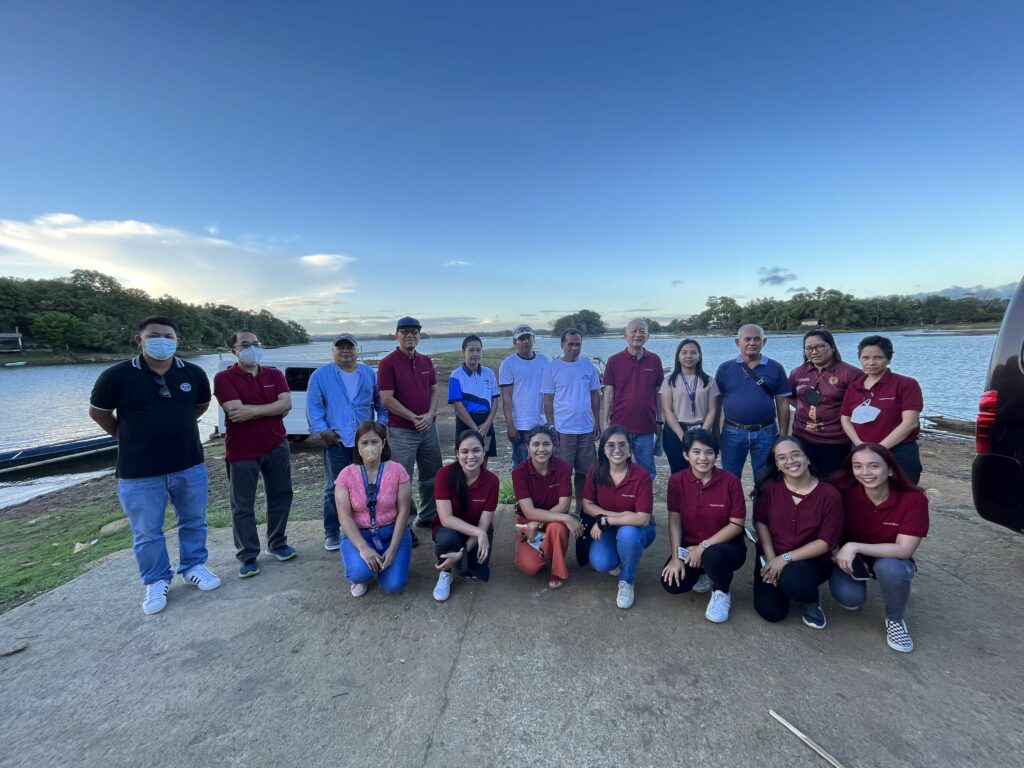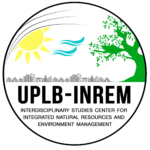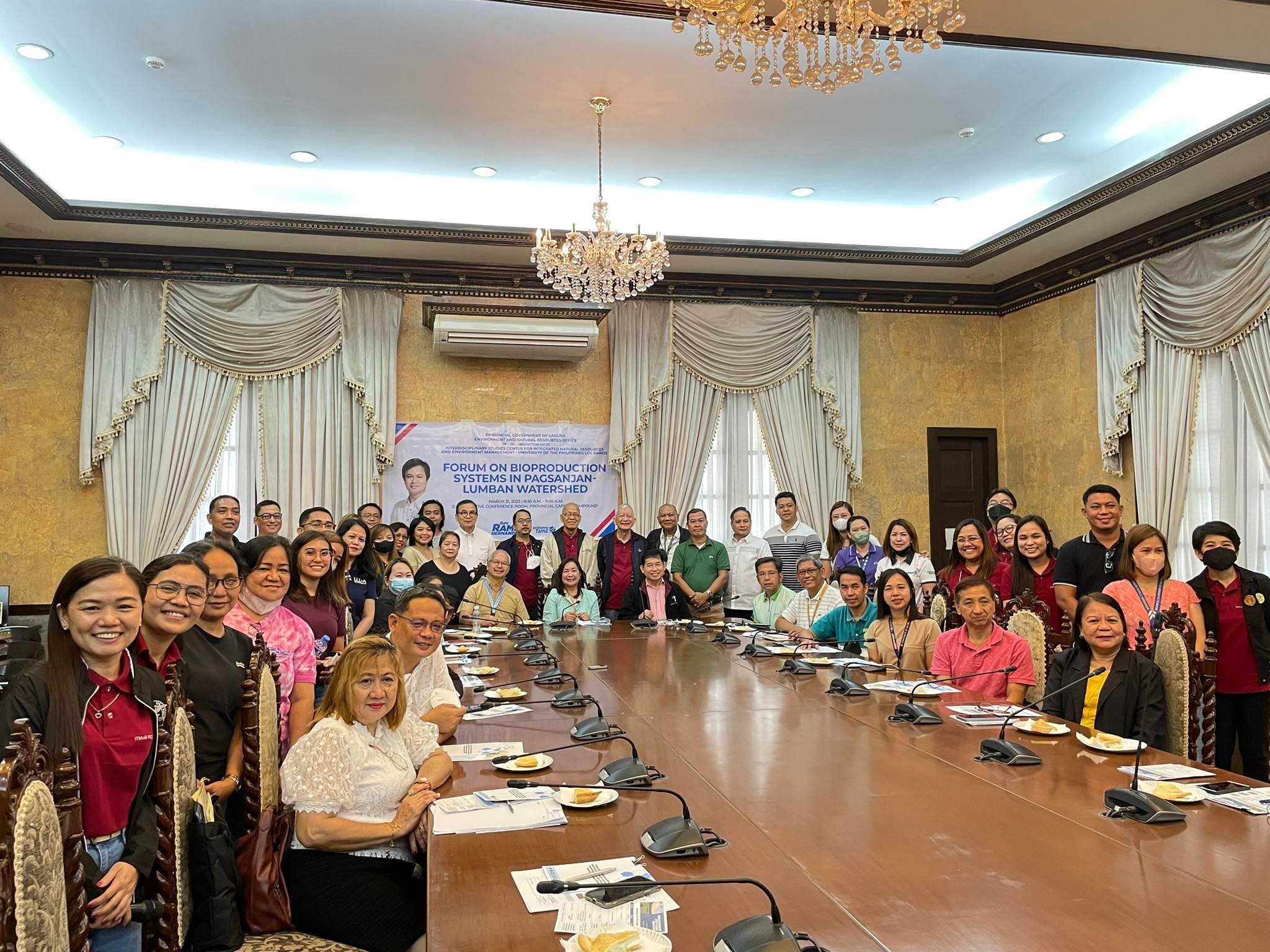The UP Los Baños Interdisciplinary Studies Center for Integrated Natural Resources and Environment Management (UPLB-INREM) and the Laguna Provincial Government Environment and Natural Resources Office (Laguna PG-ENRO) co-organized a Forum on Bioproduction Systems in Pagsanjan-Lumban Watershed on March 31, 2023, held at the Executive Conference Room of the Provincial Governor’s Office. The forum was organized as part of the implementation of the Integration of Traditional and Modern Bioproduction Systems for a Sustainable and Resilient Future Under Climate and Ecosystems Changes (ITMoB) Project.
PG-ENRO chief and Provincial Agricultural Officer Mr. Marlon Tobias welcomed the project team and the participants. Thereafter, representing Governor Ramil Hernandez, Ms. Carina Macalos, Provincial Government Assistant Department Head gave a message from the Governor. She said: The Governor “extends his gratitude to you because we know that this Forum on Bioproduction Systems in Pagsanjan-Lumban Watershed will give a good avenue for us, stakeholders, to better understand the long-term impacts of climate and ecosystem changes to our watershed. Our administration recognizes all the help that we can get from experts here.”
Dr. Marcelino Siladan representing Dr. Reynaldo Ebora, Executive Director of the Philippine Council for Agriculture, Aquatic and Natural Resources Research and Development of the Department of Science and Technology (DOST-PCAARRD), which is funding and monitoring the implementation of the ITMoB Project said: “We look forward to the outcome of this project and how we can make use of the information that will be derived by the ITMoB project team alongside committed partner LGUs to put forward policies and programs that can ensure proper management of the watershed.”
Led by Dr. Juan Pulhin, UPLB-INREM Chair and ITMoB Project Leader, work package leaders including Dr. Rex Victor Cruz, Dr. Cristino Tiburan, Jr., Dr. Asa Sajise presented preliminary findings of the project while participants provided feedback and inputs. Academicians Rafael Guerrero III and Eufemio Rasco, project specialists, also provided technical inputs during the discussion.
The forum was participated by more than sixty watershed stakeholders including representatives of national government agencies and local government units located within the 40,000-hectares watershed including Cavinti, Kalayaan, Luisiana, Lumban, Magdalena, Majayjay, Pagsanjan, and Lucban.
Majayjay Mayor Romeo Amorado himself was present and shared his thoughts: “The report is correct, there’s a decrease in land for coconut and rice production and forest areas. In Majayjay, many of our lands are converted for vegetable farming because oftentimes income is better with vegetable farming.”
For. Venerando Garcia, CENRO Sta Cruz, in his closing remarks said: “The Pagsanjan-Lumban Watershed is quite unique since the bioproduction system in the watershed area is predominantly agriculture-based but we really have to consider that PLW is not entirely agricultural land. In terms of land classification, it is composed of timber lands and alienable and disposable lands. Looking at the expected and initial outputs of the ITMoB Project, we find them very useful especially to our LGU partners as they prepare, update, and revise their respective forest land use plans and comprehensive land use plans.. We are very grateful to the project team for sharing these with us.“
Following the forum, the ITMoB Project Team and some LGU representatives visited Majayjay’s APA Farm and Troy Integrated Farms, as well as Cavinti’s Lumot Lake. Farming and fishing practices and systems, as well as issues and concerns in production and marketing, were discussed during the visit. Furhermore, Dr. Rafael Guerrero III, well-known as ‘Father of Tilapia Sex-Reversal’, sat down with some of the fisherfolk leaders in Cavinti to initially assess the aquatic farm situations and shared technical advices in exploring solutions to frequent occurrence of fish kills, specifically Tilapias in the said lake.
The ITMoB project is a three-year project that will run from October 16, 2021 – October 15, 2024 and is being implemented through the generous support of the DOST-PCAARRD. (Laizha Lynn Lomente – University Research Associate II and Farah Sevilla – University Researcher)

